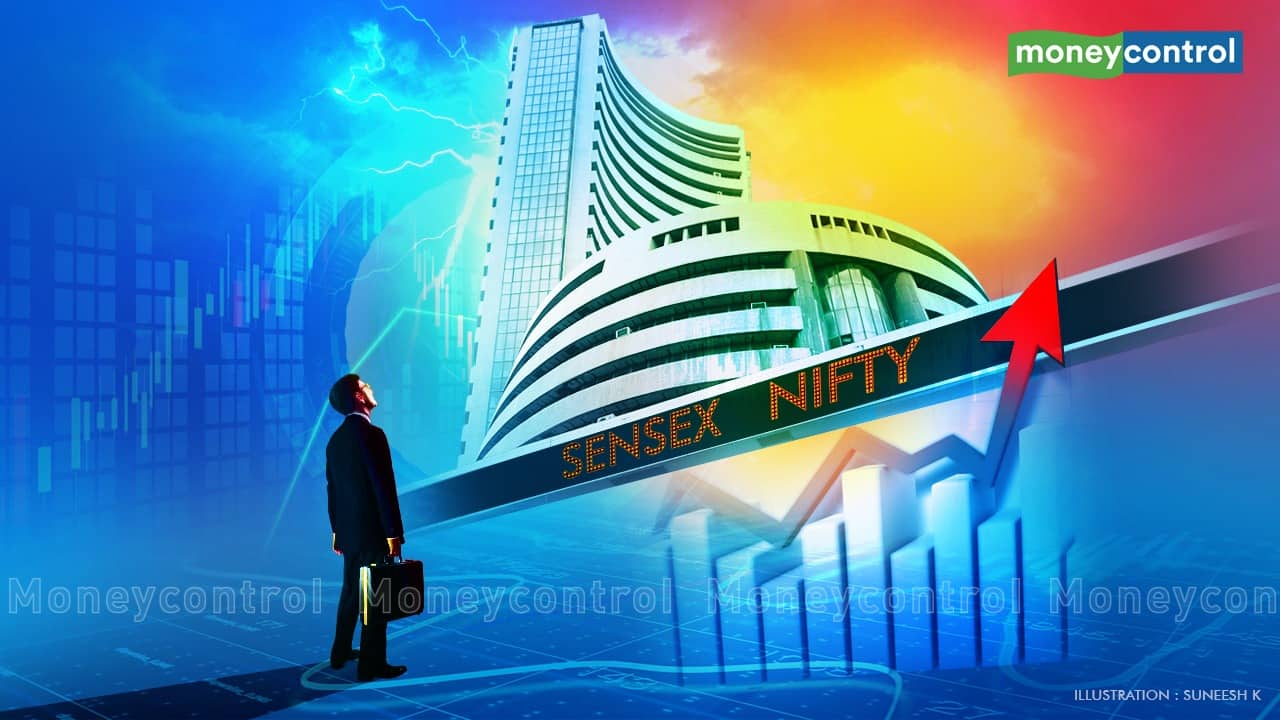 |
|
The Indian equity markets experienced a significant downturn on Thursday, with the benchmark indices, Sensex and Nifty, plummeting over 1%. This sharp decline was primarily attributed to a widespread selloff in the IT and auto sectors, exacerbated by escalating global economic concerns and anxieties surrounding potential trade wars. The BSE Sensex plummeted by 1,208 points (1.51%) to 79,025, while the NSE Nifty shed 358 points, settling at 23,916. Traders cited a rapid unwinding of trades ahead of the derivatives expiry as a contributing factor to the market's volatility. This sudden downturn, however, is not easily explained by a singular event, rather a confluence of factors created a perfect storm for market anxiety.
One of the most significant factors contributing to the market's decline was the resurgence of trade war fears. US President Donald Trump's comments regarding the imposition of additional tariffs on Chinese goods (a 10% levy) and imports from Mexico and Canada (a 25% tax) significantly dampened market sentiment. These pronouncements, coupled with Trump's past criticisms of India as a 'very big trade abuser' during his election campaign, fueled concerns about heightened US-India trade tensions. While several economists have argued that India's economy may be relatively insulated from the immediate impact of these tariffs, the uncertainty surrounding these potential trade disputes remains a significant source of market anxiety. Morgan Stanley's Chief Asia Economist, Chetan Ahya, for instance, suggests that India's robust structural tailwinds and sound policy measures should mitigate the effects of these tariffs, estimating that a 10% tariff increase might only reduce India's growth by 30 basis points. However, this perspective does not entirely alleviate the concerns of investors who react to the perceived risk rather than the calculated economic impact.
The US Federal Reserve's stance on interest rate cuts also played a crucial role in shaping the Indian market's reaction. The release of US inflation data, specifically the Core PCE Price Index, which rose by 2.8% year-on-year in October, reinforced expectations of a more cautious approach by the Fed regarding interest rate reductions. This dampened hopes for an imminent rate cut, a move that would typically provide a boost to equity markets. The combination of robust Q3 US GDP growth fueled by strong consumer spending and business investment, alongside unexpectedly high pending home sales data, further solidified the Fed's perceived reluctance to lower interest rates. Elevated interest rates tend to weigh on equities, benefiting non-yielding assets like gold instead, further exacerbating the negative impact on the Indian stock market. This uncertainty surrounding the trajectory of US interest rate cuts significantly impacted heavyweight IT firms, contributing substantially to the overall market decline.
The bearish sentiment was further amplified by weakness in other Asian markets, particularly China. Chinese stocks led the regional decline as investors anxiously awaited further economic stimulus measures ahead of a critical policy meeting in Beijing. The sharp falls in Hong Kong and mainland benchmarks contributed to a weaker overall regional outlook, dashing hopes for a revival in fund flows into emerging market funds. This interconnectedness of global markets highlights the vulnerability of emerging economies like India to external shocks and the influence of broader global economic trends. The precipitous decline in the Indian markets serves as a stark reminder of the interconnected nature of global finance and the sensitivity of investor sentiment to geopolitical events and central bank policies. The interplay of trade tensions, interest rate expectations, and the performance of other major economies underscores the complex factors that shape market behavior and the challenges faced by investors in navigating these uncertainties.
Looking ahead, investors will be closely monitoring key economic data releases, including India's GDP data due on Friday and the minutes from the latest US Federal Reserve meeting, expected later today. These announcements will likely have a significant impact on market sentiment and could potentially influence the trajectory of the Indian markets in the coming days. The current market volatility underscores the need for investors to carefully consider their risk tolerance and adopt a well-diversified investment strategy to navigate the inherent uncertainties of the global financial landscape. The interconnectedness of global markets necessitates a comprehensive understanding of international economic trends and geopolitical developments to effectively manage investment portfolios and mitigate potential risks.
The overall impact of these interwoven factors resulted in a significant sell-off in the Indian stock market. The combination of trade war fears, the Fed's stance on interest rates, and weakness in Asian markets created a perfect storm of negative sentiment, leading to the sharp decline. While some economists offer a more optimistic perspective, the inherent uncertainty associated with these factors continues to create volatility in the market, posing challenges for investors and traders alike. The upcoming release of key economic data will likely further influence market movements in the coming days, adding another layer of complexity to an already challenging market environment.
